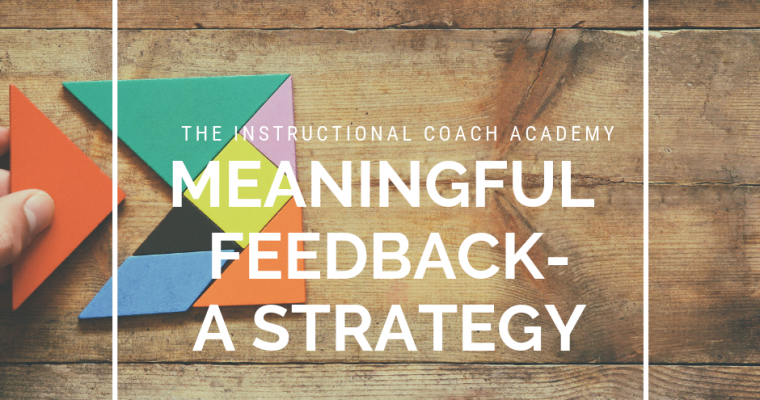Before I started coaching full-time, I used to wonder what the value of coaching light could be. For those who aren’t familiar with the terms coaching light or heavy, I suggest you check out Coaching: Approaches and Perspectives and other works by Jim Knight or Joellen Killion. I thought I would coach heavy because of the intense focus on student learning. The results were not great. My teachers didn’t know me, and I didn’t know them, so they had no reason to listen. Then, I realized that coaching light might not be so worthless after all.
Working with teachers is more like working with students than most of us would care to admit. That means relationships are everything. As a person who prides herself on the ability to foster positive relationships, I thought I could do both: coach heavy and build rapport, not so much, actually.
In addition, let’s be honest, teachers are intimidating. Coaching heavy takes incredible guts: self-assurance, thick skin, and courage. When I was new, I felt like a fraud, like I didn’t know what I was doing yet. Sometimes this was true, but mostly thinking I was a fraud had to do with my confidence. Coaching heavy intensified my feelings of inadequacy.
A few teachers listened and responded enthusiastically. I’m proud to say no one got nasty or defensive or generally unpleasant, but my feedback didn’t generate any instructional improvement either. I received vague platitudes, empty gratitudes, and not much else.
After a year, I switched positions for reasons that have nothing to do with coaching. In my new position, I decided to try another approach, a relationship forward approach. This approach combined my personal relationship and my coaching relationship with each teacher. I made a conscious decision to coach lighter.
I realized that before teachers could focus on student learning, I needed to focus on teacher learning. Thankfully, I have never played a teacher’s aide or doled out random resources, but I do act as recorder and resource. While we have instructional expectations and curriculum, I value the expertise of my teachers and I make sure they know it.
The results have been undeniably positive. My relationships are stronger. My feedback is taken more seriously, even though or maybe because, I make a point to see everything and judge nothing. Teachers are seeking me out when they need ideas or support. That didn’t happen before.
Coaching light has value because it leads naturally to coaching heavy. Maybe the answer isn’t either/or. Instead, every coach has to find a balance between heavy and light that meets the needs of each teacher, of each position. The value of coaching light lies in the way it can give a coach the ability to foster positive instructional improvement built on mutually respectful relationships and commitments.


